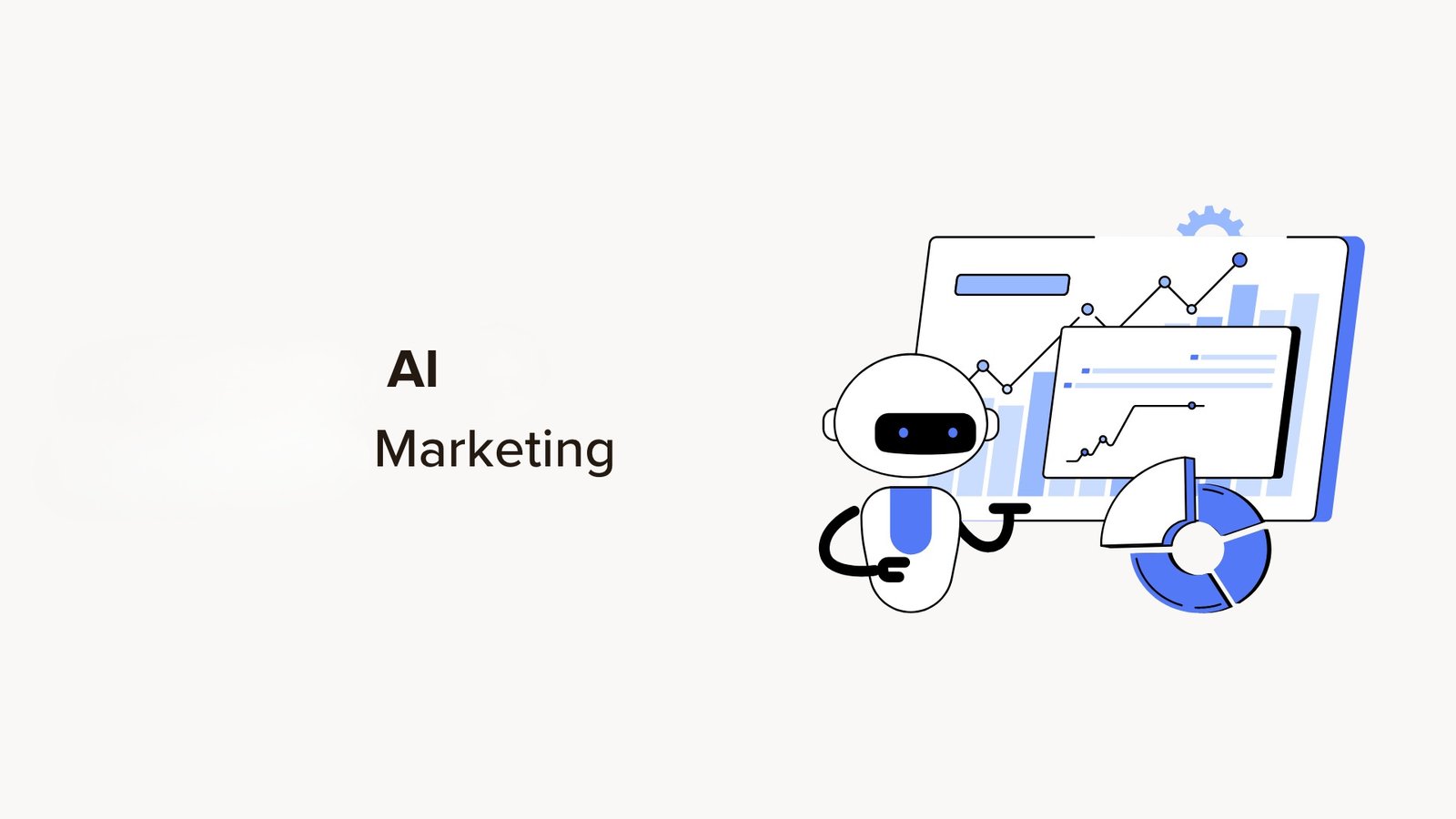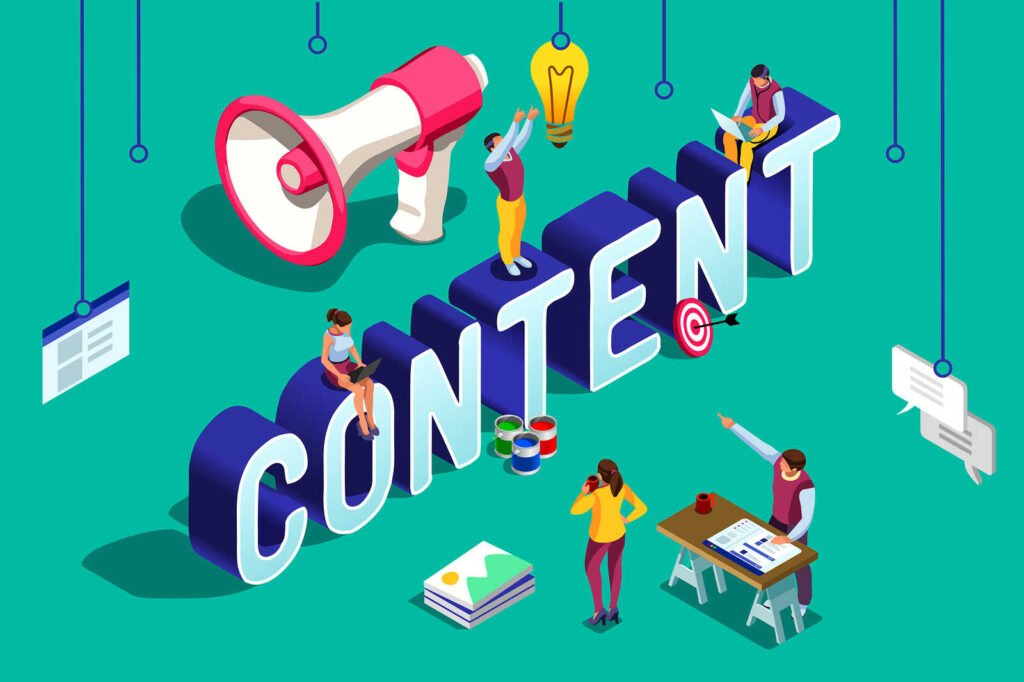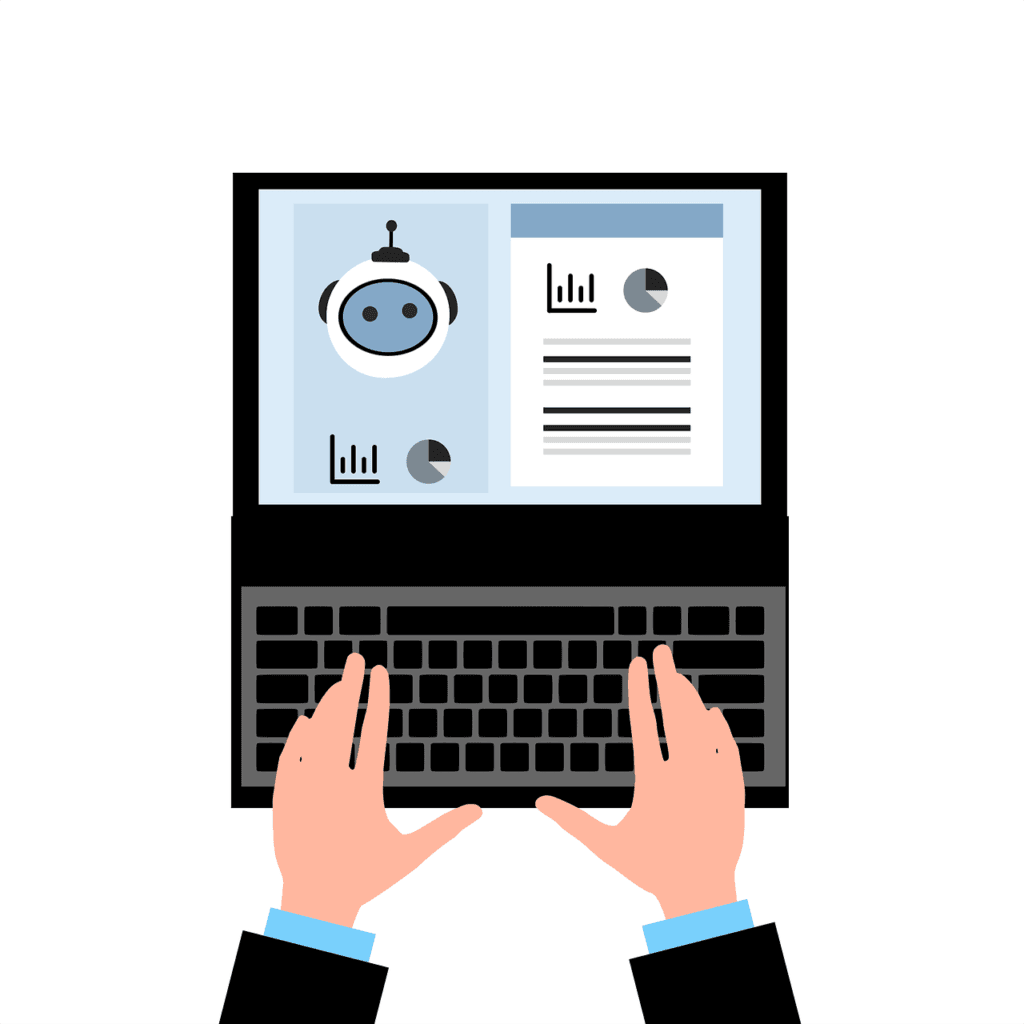Marketing is all about reaching the right people with the right message at the right time. But in today’s digital world, doing this effectively requires more than just intuition and experience. This is where artificial intelligence, or AI, comes in. AI-powered marketing analytics can transform your campaigns by providing deep insights, predicting customer behavior, and optimizing your strategies in real time. This article explores how AI can supercharge your marketing efforts, helping you achieve better results with less effort.
Understanding AI in Marketing Analytics
What is AI-Powered Marketing Analytics?
AI-powered marketing analytics involves using artificial intelligence to analyze marketing data and extract valuable insights. This includes understanding customer behavior, predicting future trends, and optimizing marketing strategies.
AI can process vast amounts of data quickly and accurately, making it an invaluable tool for modern marketers.
Why AI Matters in Marketing
In the past, marketing decisions were often based on guesswork and historical data. While these methods can provide some insights, they are limited in their ability to predict future trends and customer behaviors.
AI changes this by analyzing current data in real-time and using machine learning to make accurate predictions. This means you can make more informed decisions, tailor your campaigns more precisely, and ultimately achieve better results.
Enhancing Customer Insights
Understanding Your Audience
One of the most significant benefits of AI in marketing analytics is its ability to provide a deep understanding of your audience. AI can analyze data from various sources, including social media, website interactions, and purchase history, to build a comprehensive profile of your customers.
This helps you understand who your customers are, what they like, and how they behave. With this information, you can create more targeted and effective marketing campaigns.
Predicting Customer Behavior
Predictive analytics is a powerful tool that uses AI to forecast future customer behavior. By analyzing past behaviors and trends, AI can predict what your customers are likely to do next.
This can include predicting which products they are likely to buy, when they are most likely to make a purchase, and how they will respond to different marketing messages. These predictions enable you to tailor your marketing strategies to meet your customers’ needs more effectively.
Personalizing Customer Experience
Personalization is key to successful marketing. AI can help you deliver personalized experiences to each customer by analyzing their preferences and behaviors.
For example, AI can recommend products based on a customer’s past purchases or suggest content that matches their interests. This level of personalization makes customers feel valued and understood, increasing their loyalty and engagement with your brand.
Optimizing Marketing Strategies
Real-Time Data Analysis
One of the most significant advantages of AI is its ability to analyze data in real-time. This allows you to monitor your marketing campaigns as they happen and make adjustments on the fly.
For example, if an email campaign isn’t performing as expected, AI can analyze the data and suggest changes to improve its effectiveness. This real-time optimization ensures that your marketing efforts are always on track and delivering the best possible results.
A/B Testing and Optimization
A/B testing is a common practice in marketing, where two versions of a campaign are tested to see which performs better. AI takes A/B testing to the next level by automating the process and analyzing the results in real-time.
This means you can test multiple variables simultaneously, such as subject lines, images, and calls-to-action, and quickly identify which combination works best. This continuous optimization helps you fine-tune your campaigns for maximum impact.
Content Creation and Curation
AI can also assist with content creation and curation. By analyzing data on what types of content perform best with your audience, AI can suggest topics and formats that are likely to resonate.
Additionally, AI can help curate content by finding and recommending articles, videos, and other resources that are relevant to your audience. This ensures that your content is always fresh, engaging, and aligned with your audience’s interests.
Automating Marketing Processes
Streamlining Campaign Management
AI can significantly streamline campaign management by automating many of the routine tasks involved in running marketing campaigns. This includes scheduling posts, managing budgets, and tracking performance. By automating these tasks, AI frees up your time to focus on strategy and creativity.
For example, AI can automatically adjust your ad spend based on performance, ensuring that your budget is used most effectively.
Chatbots and Customer Interaction
AI-powered chatbots are transforming customer interaction. These chatbots can handle customer inquiries in real-time, providing instant responses and support.
They can answer common questions, guide users through your website, and even assist with purchases. By providing quick and accurate responses, chatbots improve the customer experience and free up human agents to handle more complex issues.
Email Marketing Automation
AI can enhance email marketing by automating the creation, personalization, and sending of emails. AI can analyze customer data to determine the best time to send emails, the optimal subject lines, and the most relevant content for each recipient.
This level of automation ensures that your emails are more likely to be opened, read, and acted upon, increasing your overall email marketing effectiveness.
Improving ROI with AI

Targeting the Right Audience
One of the key factors in improving ROI is ensuring that your marketing efforts are reaching the right audience. AI can analyze demographic, behavioral, and psychographic data to identify your most valuable customers.
This allows you to focus your marketing efforts on the people who are most likely to convert, ensuring that your resources are used most effectively.
Predictive Analytics for Sales Forecasting
AI can improve sales forecasting by analyzing historical sales data and identifying patterns and trends.
This allows you to make more accurate predictions about future sales, helping you plan your inventory, budget, and marketing strategies more effectively. By understanding when and where sales are likely to occur, you can allocate your resources more efficiently and improve your overall ROI.
Reducing Customer Churn
AI can also help reduce customer churn by identifying customers who are at risk of leaving. By analyzing customer behavior and engagement data, AI can predict which customers are likely to churn and why.
This allows you to take proactive measures to retain these customers, such as offering personalized incentives or improving customer support. By reducing churn, you can improve customer lifetime value and boost your overall ROI.
Enhancing Social Media Marketing
Analyzing Social Media Trends
AI can analyze social media data to identify trends and patterns that can inform your marketing strategies.
This includes analyzing hashtags, keywords, and user sentiment to understand what topics are trending and how your audience feels about different issues. By staying on top of social media trends, you can create more relevant and engaging content that resonates with your audience.
Optimizing Ad Spend
Social media advertising can be a significant investment, so it’s essential to ensure that your ad spend is used effectively. AI can analyze the performance of your social media ads in real-time and make adjustments to optimize results.
This includes reallocating budget to the best-performing ads, adjusting targeting parameters, and testing different ad creatives. By continuously optimizing your social media ad spend, you can maximize your ROI and achieve better results.
Enhancing Influencer Marketing
Influencer marketing is a popular strategy, but finding the right influencers to work with can be challenging. AI can help by analyzing social media data to identify influencers who have the most significant impact on your target audience.
This includes assessing their engagement rates, audience demographics, and content relevance. By choosing the right influencers, you can ensure that your influencer marketing campaigns are more effective and deliver better results.
Leveraging AI for Customer Segmentation
Detailed Customer Profiles
AI can create detailed customer profiles by analyzing data from multiple sources, including purchase history, website interactions, and social media activity.
These profiles provide a comprehensive view of each customer, allowing you to understand their preferences, behaviors, and needs. This information is invaluable for creating targeted marketing campaigns that resonate with specific segments of your audience.
Dynamic Segmentation
Traditional customer segmentation methods often rely on static criteria, such as age, gender, or location. AI, however, enables dynamic segmentation, which considers real-time data and changing behaviors.
For example, AI can segment customers based on their current interactions with your brand, their engagement levels, and their purchase history. This dynamic approach allows you to tailor your marketing efforts to the most relevant and engaged segments of your audience.
Personalizing Marketing Messages
Once you have segmented your audience, AI can help personalize your marketing messages for each segment. This includes customizing the content, timing, and delivery method of your messages.
For example, AI can determine which type of content (e.g., videos, articles, or infographics) is most likely to engage a particular segment. By delivering personalized messages, you can increase engagement and conversion rates.
Enhancing Customer Loyalty Programs

Predictive Loyalty Programs
AI can enhance customer loyalty programs by predicting which customers are most likely to respond to loyalty initiatives. By analyzing customer behavior and engagement data, AI can identify patterns that indicate loyalty, such as frequent purchases or high engagement with your brand.
This allows you to target these customers with personalized loyalty offers, increasing their likelihood of staying loyal to your brand.
Automating Reward Systems
AI can automate the management of loyalty programs, making it easier to track and reward customer behavior. For example, AI can automatically update customer points based on their purchases and interactions, and send personalized reward notifications.
This automation ensures that your loyalty program runs smoothly and that customers receive timely and relevant rewards.
Enhancing Customer Experience
AI can improve the overall customer experience by making loyalty programs more engaging and relevant. For example, AI can suggest personalized rewards based on a customer’s preferences and behaviors.
This makes the loyalty program more appealing to customers and increases their engagement and satisfaction with your brand.
Improving Content Marketing
Content Recommendation Engines
AI-powered content recommendation engines can suggest relevant content to your audience based on their behavior and preferences. By analyzing data such as past interactions, search history, and social media activity, AI can recommend articles, videos, and other content that are likely to interest each user.
This personalized approach increases engagement and encourages users to spend more time interacting with your content.
Enhancing SEO Strategies
AI can also enhance your SEO strategies by analyzing search trends and identifying the best keywords for your content. By understanding what your audience is searching for, AI can help you create content that ranks higher in search engine results and attracts more organic traffic. Additionally, AI can monitor changes in search algorithms and adjust your SEO strategies accordingly, ensuring that your content remains optimized.
Automating Content Creation
AI can assist with content creation by generating ideas, drafting content, and even creating full articles or social media posts. For example, AI tools can analyze trending topics and suggest relevant blog post ideas or social media updates.
While AI-generated content still requires human oversight, it can significantly speed up the content creation process and ensure that you always have fresh, relevant content for your audience.
Boosting Campaign Performance
Real-Time Campaign Monitoring
AI enables real-time monitoring of your marketing campaigns, allowing you to track performance and make adjustments as needed.
This includes analyzing metrics such as engagement rates, click-through rates, and conversion rates. By monitoring your campaigns in real-time, you can quickly identify any issues and optimize your strategies for better results.

With the development of AI technology and its application in the business field, more and more AI-driven tools and techniques are used to improve marketing strategies. For example, Adobe Analytics is a powerful AI-driven data analysis tool.
It can predict customer churn probability, purchase intention, etc. through automated data analysis. Marketers can use Adobe Analytics to track user behavior in real-time across multiple platforms such as websites, mobile applications, email, etc., and adjust marketing strategies based on reports generated by AI.
IBM Watson Marketing is another great choice. It provides powerful cognitive computing capabilities that can analyze users’ emotional tendencies, and consumption behavior, and predict their next actions.
ATSON Marketing also supports natural language processing (NLP), which can extract valuable information from data such as customer feedback and social media comments, helping businesses quickly respond to market changes.
But for startups like us, I recommend HubSpot. HubSpot’s user-friendly interface is suitable for small businesses without a deep technical background to quickly get started and implement marketing automation.
HubSpot forms a one-stop marketing platform with CRM, email marketing, social media management, and analytics tools. For small businesses with limited resources, a one-step platform reduces the complexity and costs.
In addition, HubSpot offers prices at multiple levels, including free and paid versions. Small companies can start with the free version and gradually upgrade to get more advanced functions for their business growth and needs.

As the Director of Marketing at Ronkot Design, we use AI and machine learning to analyze customer data in real-time and make rapid adjustments to our digital campaigns. Tools like Google Analytics and HubSpot provide actionable insights into how users are engaging with our content and ads.
If we notice certain calls-to-action or images aren’t resonating, we can swap them out and re-target users quickly. For example, we recently ran a social media contest for a client that wasn’t gaining much traction. Our analytics showed the creative and copy weren’t compelling enough.
We made changes to the messaging and prize offering at midnight, and by next morning, entrants had tripled. Quick optimization turned a dud into a success. AI has been instrumental for dynamic creative testing and optimization.
We can easily generate hundreds of ad variations and customize them for different audience segments. Then we let the algorithms determine which creatives are highest-performing so we can double down on those. It’s revolutionized how we distribute content and scale campaigns.
We can start with broad targeting but use AI to hone in on key niches and make real-time tweaks based on performance. AI and advanced analytics have enabled marketers to be far more agile and data-driven.
The tools are getting more sophisticated, but even basic usage of AI for monitoring metrics and adjusting creative or targeting can lead to big wins. Marketing is no longer static – with AI, it’s a fluid, always-on process of testing, learning, and optimizing.

As the founder of Raincross, a digital marketing agency, we rely heavily on AI and analytics to optimize client campaigns in real time. Tools like Google Analytics and Google Ads provide data on how users interact with ads and content so we can make immediate changes.
For example, a client wanted to increase traffic for a new product launch. We used broad targeting initially but analytics showed higher conversion rates for a specific demographic. We adjusted the campaign to focus on that audience and added new creatives targeting their interests.
Within hours, CTR and conversions improved by over 50%. AI powers our dynamic creative testing. We generate hundreds of ad variations to determine the highest performers for different segments. Then we scale the winning creatives and make changes based on real-time performance.
A client’s social ad campaign had low engagement until we tested new formats, visuals and copy. The optimized creatives led to a 200% increase in total actions the next day. AI and analytics enable constant testing and optimization. Marketing is fluid, not static.
We start campaigns with a hypothesis but let the data guide adjustments and improvements. Even basic AI usage, like monitoring key metrics and tweaking targeting or creative, can significanrly impact results. With AI, marketing is an ongoing process of learning and optimizing based on performance.

As the founder of Sail, an AI-driven hotel marketing company, I rely on data and analytics to optimize client ad campaigns and boost direct bookings in real time.
Our machine learning algorithms aggregate campaign metrics to refine audience targeting and creative selection dymamically. For a major hotel chain, broad targeting initially yielded low booking rates. Analytics showed highest conversion among families planning summer vacations.
We adjusted targeting to focus on this audience and added new ads featuring family-friendly amenities. Within a day, CTR and bookings jumped 60%. We generate thousands of ad variations to determine top performers for each audience.
The most effective creatives are scaled up while low performers are culled. One client’s social ad campaign had poor results until we tested new visuals and copy.
The winning creatives produced 200% more actions and significantly higher booking revenue. AI and analytics enable constant testing and optimization.
We start with a hypothesis but let data guide improvements. Even basic optimizations like tweaking targeting or creative based on key metrics can boost campaign success.
For Sail, marketing is an iterative process of testing, learning and optimizing to drive the best outcomes. AI makes this possible in real time.

As CEO of AQ Marketing, I leverage AI and analytics to optimize client campaigns in real time. Tools like Google Analytics provide data on how users interact with ads and content.
If certain elements underperform, we make changes within hours. For example, a social contest for a client wasn’t gaining traction. Analytics showed the creative was lacking. We updated the messaging overnight, and entrants tripled.
AI enables automated A/B testing and dynamic creative optimization at scale. We can generate hundreds of ad variants for different segments and let the algorithms determine highest-performing.
Rather than broad targeting, AI helps identify key niches so we can tweak in real time based on performance. While AI marketing analytics are advancing, even basic usage of AI to monitor metrics and adjust creative or targeting leads to wins.
Marketing is fluid, always testing, learning and optimizing. AI tools allow us to be nimble and data-driven, turning duds to successes through quick optimization.

With a decade of experience in technology and product management, I’ve seen firsthand how AI-driven analytics can transform marketing strategies. Here are some key case studies and tools showcasing how businesses are leveraging AI to make real-time adjustments to their campaigns:
Dynamic Ad Adjustments: The mode of advertisement through Google and Facebook Ads Manager does not rely on a set campaign but changes with the user’s interaction in real time. One case involved a business that had included Google’s Smart Bidding in their campaigns.
It examines the behavior of the audience and changes the bids for the determined keywords in real time. Results: Frustrated! other competent and cutting-edge companies signed 30% expanded returns on investment within a few weeks.
Content Personalization: Hubspot, Marketo as well as other similar software are capable of studying website and social media visitors’ behavior and they use artificial intelligence to do so.
For instance, a retail client used the ‘Predictive Lead Scoring’ feature of Hubspot’s to some of the webpages and offers on the pages depending on the interaction made by the user. Their conversion rates increased by 25 % because of this timely modification.
A/B Testing and User Feedback: Continuous A/B tests and machine learning to analyze the responses to the content are features granted by Optimizely and Unbounce to marketers.
One engagement, the brand engaged AI analytics optimization on optimizely, to track how users interacted with the brand and automated the change of visual content on landing pages, with the resultant effect of reducing bounce rates by 20%.
Live Sentiment Analysis: Monitoring social media via Hootsuite Insights and Brandwatch the marketers assess how people feel about a brand. For instance, a business tracked brand mentions during the launch of a product and applied AI to understand any shifts in sentiment and change their messaging if needed to obtain better consumer sentiments.

At BigOhTech, we are actively using AI-powered marketing analytics for better conversion rate optimization.
The tool we are using is Microsoft Clarity. It has a built in AI-powered insights feature which shows the analytical insights of a particular user session.
When we are running a campaign, such insights are really helpful because it helps us to understand what a user is doing on a page and what exactly he wants.
This way, we have been able to fix a lot of issues within our website, landing pages and creatives leading to improved conversion rate ultimately.
Advanced Analytics and Reporting
AI-powered analytics tools provide detailed insights into your campaign performance, helping you understand what is working and what isn’t.
These tools can analyze vast amounts of data and generate comprehensive reports that highlight key metrics and trends. This information is invaluable for refining your marketing strategies and ensuring that your campaigns are as effective as possible.
Continuous Improvement
One of the most significant benefits of AI is its ability to support continuous improvement. By constantly analyzing data and learning from past campaigns, AI can provide ongoing insights and recommendations for optimizing your marketing efforts.
This ensures that your campaigns are always evolving and improving, leading to better results over time.
Transforming Customer Service with AI
AI-Driven Customer Support
AI-driven customer support is revolutionizing the way businesses interact with their customers. Chatbots and virtual assistants powered by AI can handle a wide range of customer inquiries, providing instant responses and support.
This not only improves customer satisfaction by reducing wait times but also frees up human agents to handle more complex issues. For example, AI chatbots can guide customers through common troubleshooting steps, answer frequently asked questions, and even assist with simple transactions.
Enhancing Customer Feedback
Gathering and analyzing customer feedback is crucial for improving your products and services. AI can streamline this process by automatically collecting feedback from various channels, such as surveys, social media, and online reviews.
AI can then analyze this feedback to identify common themes and sentiments, providing valuable insights into customer satisfaction and areas for improvement. By leveraging AI to understand customer feedback, you can make data-driven decisions to enhance your offerings and better meet customer needs.
Personalizing Customer Interactions
Personalization is key to creating a positive customer experience. AI can help you deliver personalized interactions by analyzing customer data and tailoring responses based on individual preferences and behaviors. For example, AI can recommend products based on a customer’s purchase history or suggest content that aligns with their interests. This level of personalization makes customers feel valued and understood, increasing their loyalty and engagement with your brand.
Boosting Conversion Rates
Predictive Lead Scoring
AI can improve your lead scoring efforts by predicting which leads are most likely to convert. By analyzing data such as website interactions, email engagement, and social media activity, AI can assign scores to leads based on their likelihood to make a purchase.
This allows you to prioritize your marketing efforts on high-quality leads, increasing your chances of conversion. Predictive lead scoring helps you focus your resources on the leads that matter most, improving your overall sales performance.
Dynamic Pricing Strategies
AI can enhance your pricing strategies by analyzing market conditions, competitor prices, and customer behavior to determine the optimal price for your products. Dynamic pricing involves adjusting prices in real-time based on demand and other factors.
For example, an AI algorithm can lower prices during slow periods to attract more customers or increase prices when demand is high. This data-driven approach to pricing ensures that you maximize revenue while remaining competitive in the market.
Optimizing Checkout Processes
The checkout process is a critical stage in the customer journey, and any friction can lead to abandoned carts and lost sales. AI can optimize the checkout process by analyzing user behavior and identifying areas of improvement.
For example, AI can recommend simplifying forms, offering multiple payment options, or providing real-time support during checkout. By making the checkout process as smooth and seamless as possible, you can reduce cart abandonment and boost your conversion rates.
Enhancing Data Security
Fraud Detection and Prevention
Data security is a top concern for any business, especially when handling sensitive customer information. AI can enhance data security by detecting and preventing fraud in real-time. By analyzing transaction data, user behavior, and other indicators, AI can identify suspicious activities that may indicate fraud.
For example, AI can flag unusual login attempts or detect patterns that suggest fraudulent transactions. This proactive approach to security helps protect your business and your customers from potential threats.
Data Privacy Compliance
Ensuring compliance with data privacy regulations is crucial for maintaining customer trust and avoiding legal issues. AI can help you manage data privacy compliance by automating processes such as data classification, consent management, and reporting.
For example, AI can automatically classify and protect sensitive data, ensuring that it is handled in accordance with privacy regulations. By leveraging AI to manage data privacy, you can ensure that your business remains compliant and builds trust with your customers.
Secure Data Management
AI can improve the overall management of your data by automating tasks such as data encryption, access control, and anomaly detection. For example, AI can automatically encrypt sensitive data and manage access permissions to ensure that only authorized users can access it.
Additionally, AI can monitor your data systems for any unusual activities or potential security breaches, allowing you to respond quickly to threats. By enhancing your data management practices with AI, you can protect your business and your customers’ information.
Future Trends in AI-Powered Marketing Analytics

Continued Advancements in AI Technology
The field of AI is continually evolving, with new advancements and innovations emerging regularly. As AI technology continues to advance, its applications in marketing analytics will become even more sophisticated and powerful.
For example, advancements in natural language processing (NLP) will enable AI to better understand and analyze unstructured data, such as social media posts and customer reviews. This will provide deeper insights into customer sentiments and preferences, allowing for more effective marketing strategies.
Integration with Other Technologies
AI will increasingly be integrated with other emerging technologies, such as augmented reality (AR), virtual reality (VR), and the Internet of Things (IoT). For example, AI can analyze data from IoT devices to provide real-time insights into customer behavior and preferences.
Similarly, AI can enhance AR and VR experiences by personalizing content and interactions based on user data. These integrations will open up new possibilities for creating immersive and engaging marketing experiences.
Ethical AI Practices
As the use of AI in marketing analytics grows, ethical considerations will become increasingly important. This includes ensuring transparency in how AI systems operate, addressing biases in AI algorithms, and protecting customer privacy.
Businesses must prioritize ethical AI practices to build trust with their customers and avoid potential legal and reputational risks. By adopting ethical AI practices, businesses can ensure that their AI-driven marketing strategies are both effective and responsible.
Wrapping it up
AI-powered marketing analytics can transform your campaigns by providing deep insights, predicting customer behavior, and optimizing strategies in real-time. By enhancing customer understanding, automating processes, and improving data security, AI helps you achieve better results with less effort.
Embracing AI in marketing is essential for staying competitive and delivering personalized, effective campaigns. As AI technology continues to evolve, its role in marketing will only grow, offering even more opportunities for innovation and success.
READ NEXT:
- How to Engage Your Community Through Marketing
- Effective Marketing Strategies for Medical Practices
- Top Marketing Strategies for Real Estate Success
- Campaign Strategies with AI for Marketing Analytics
- How to Create Impactful Real Estate Marketing Postcards






















Comments are closed.